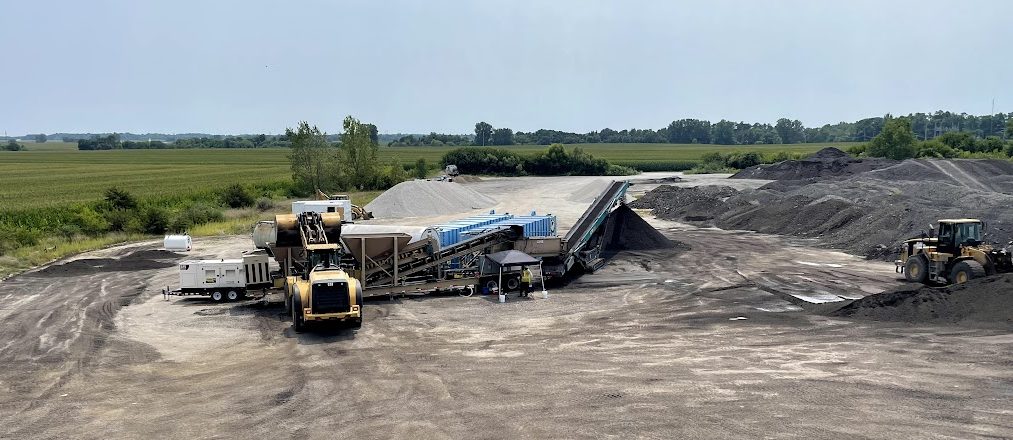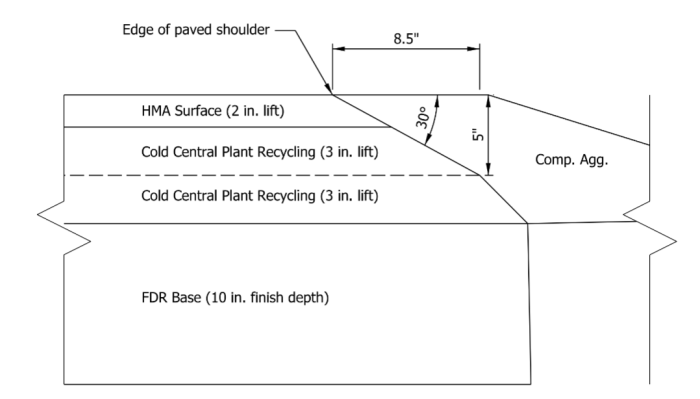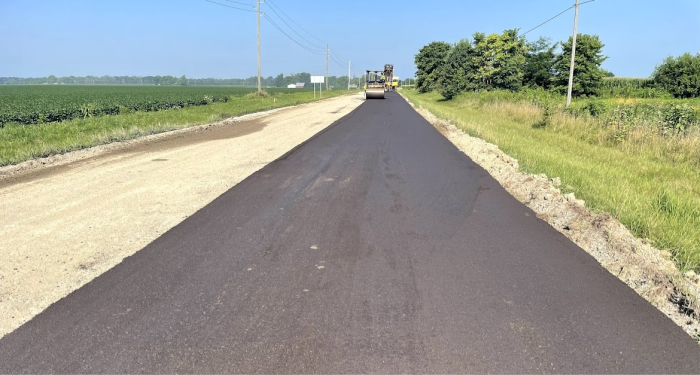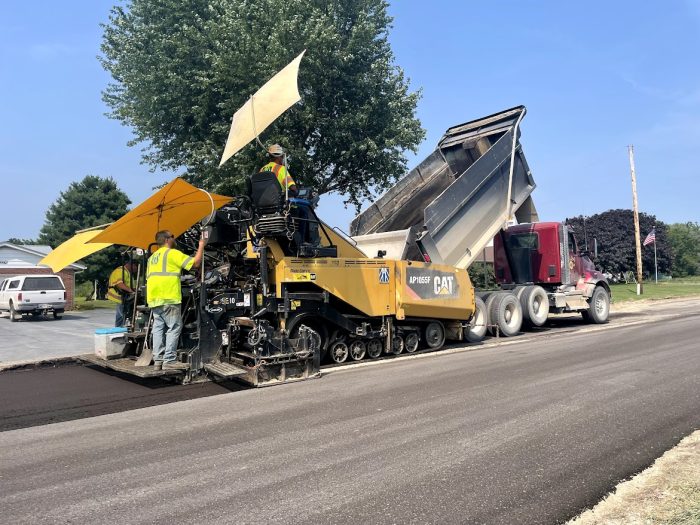14
Feb 14th, 2025

Central mixing plant where RAP is processed into CCPR mix
With road infrastructure demands increasing and budgets tightening, state and local agencies are looking for innovative, cost-effective solutions to keep their roads in top shape. One proven method is Cold Central Plant Recycling (CCPR)—a process that reuses 100% of existing materials to create durable, high-performing pavement layers, while reducing costs and environmental impact.
In 2021, Indiana’s State Route 236 became a showcase for CCPR’s potential. The 13-mile stretch had a failing subgrade and needed deep stabilization. To extend the pavement’s lifespan and improve performance, INDOT partnered with Evergreen Roadworks’ Pavement Maintenance Systems, Asphalt Materials, Inc. (AMI), Milestone Contactors and Heritage Research Group (HRG) to implement a highly efficient and sustainable reconstruction plan.
Before CCPR could be utilized, the existing road needed a stronger foundation. Crews first milled the asphalt to a depth of 8 inches, hauling the reclaimed asphalt pavement (RAP) to a nearby plant for processing.

At the central mixing plant, the recently milled RAP was sized and processed through a mobile, custom-designed pugmill, where it was blended with a precisely formulated asphalt emulsion to create the final CCPR mix.
Instead of using conventional hot mix asphalt (HMA) for the intermediate pavement layers, the CCPR mix was placed in two 3-inch lifts, using standard paving equipment. The roadway was then topped with a 2-inch HMA surface course for durability and long-term performance.

The first lift of CCPR placed on top of the FDR base

Contractor placing CCPR mix on the second lane
For low-volume roads, agencies can also consider micro surfacing or chip seal (oil and chip) as alternative wearing courses.
CCPR is transforming road construction by offering a smarter, more sustainable alternative to traditional materials. Here is why agencies are increasingly adopting this method:
The success of State Route 236 is just one example of how CCPR is changing the way roads are rebuilt. As of 2024, Pavement Maintenance Systems and AMI have completed over 16 CCPR projects across Indiana, Michigan, Ohio and Illinois—with more to come.
By rethinking how we build and maintain roads, CCPR is proving that sustainable solutions can also be cost-effective and high performing.
This project was recently featured in AsphaltPro Magazine! Check out the full story here for an inside look at the mix design process, custom mobile mixing plant and collaborative effort behind CCPR.
Interested in bringing CCPR to your next project? Contact our team today to learn more about how this innovative technique can help you maximize your road maintenance budget!